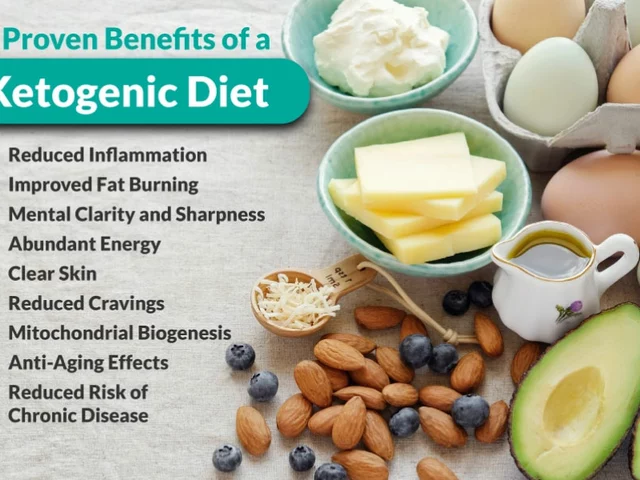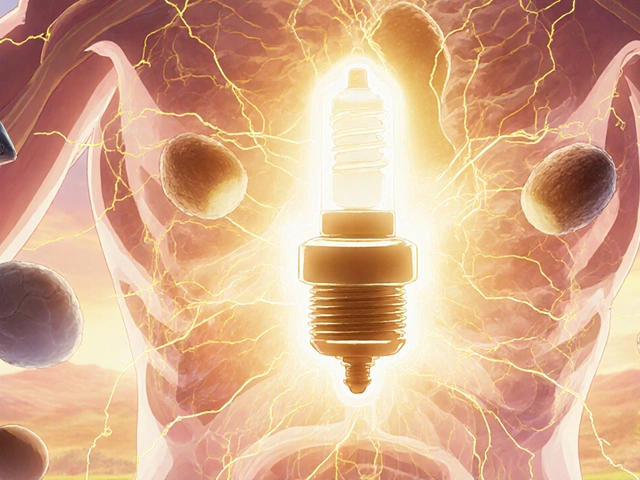Introduction to Low Libido
As a blogger who frequently discusses health and wellness topics, I have noticed that low libido is a concern that affects many individuals. It is not uncommon for people to experience fluctuations in their sexual desire throughout their lives. However, a persistent decrease in libido can be distressing and may be a sign of an underlying medical condition. In this article, we will explore various potential causes of low libido and how they can be addressed.
Hormonal Imbalances and Low Libido
One of the most common reasons for low libido is hormonal imbalances. Hormones such as testosterone and estrogen play a crucial role in regulating sexual desire. A decrease in these hormones can lead to a reduced sex drive. Menopause in women and aging in men can cause significant hormonal changes, resulting in decreased libido. Additionally, conditions such as polycystic ovary syndrome (PCOS) and hypogonadism can also lead to hormonal imbalances and low libido. If you suspect a hormonal imbalance may be the cause of your low libido, it is important to consult with a healthcare provider for appropriate diagnosis and treatment.
Low Libido as a Side Effect of Medications
Another possible cause of low libido is the use of certain medications. Antidepressants, blood pressure medications, and hormonal contraceptives are some of the common medications that can affect sexual desire. If you are taking any medications and have noticed a decrease in your libido, it is important to discuss this with your healthcare provider. They may be able to adjust your dosage or prescribe an alternative medication to help alleviate this side effect.
Chronic Health Conditions and Sexual Desire
Chronic health conditions can also contribute to low libido. Conditions such as diabetes, heart disease, and cancer can lead to fatigue, pain, and other symptoms that may interfere with sexual desire. Moreover, the stress and emotional impact of living with a chronic condition can also affect your libido. It is important to work with your healthcare team to effectively manage your chronic condition and address any concerns related to your sexual health.
Mental Health and Low Libido
Mental health plays a significant role in our overall well-being, and this includes our sexual health. Depression, anxiety, and stress can all lead to a decrease in libido. If you are struggling with mental health issues, it is crucial to seek professional help. Therapy, medication, and lifestyle changes can help improve your mental health and potentially increase your libido.
The Impact of Relationship Issues on Libido
Relationship issues can also contribute to low libido. Lack of emotional intimacy, unresolved conflicts, and communication problems can all affect sexual desire in a relationship. Couples therapy or counseling can help address these issues and may improve your libido.
Substance Abuse and Low Libido
Substance abuse, including excessive alcohol consumption and drug use, can negatively impact libido. These substances can interfere with hormone production and affect brain function, leading to a decrease in sexual desire. If you are struggling with substance abuse, seeking treatment and support is essential for not only your overall health but also your sexual well-being.
Impact of Sleep Disorders on Libido
Sleep disorders, such as insomnia and sleep apnea, can also contribute to low libido. A lack of quality sleep can lead to fatigue, irritability, and a decrease in sexual desire. If you suspect that a sleep disorder may be affecting your libido, it is important to consult with a healthcare professional for appropriate diagnosis and treatment options.
Low Libido and Nutritional Deficiencies
Nutritional deficiencies can also play a role in low libido. A deficiency in essential vitamins and minerals, such as iron, vitamin D, and zinc, can contribute to a decrease in sexual desire. Eating a balanced diet and taking supplements, if necessary, can help ensure that you are getting the nutrients your body needs to support a healthy libido.
Conclusion: Addressing Low Libido and Underlying Medical Conditions
In conclusion, low libido can be a sign of an underlying medical condition. If you are experiencing persistent low libido, it is important to consult with a healthcare professional to determine the cause and develop a treatment plan. By addressing the underlying issue, you can work towards improving your sexual health and overall well-being.





Comments (16)